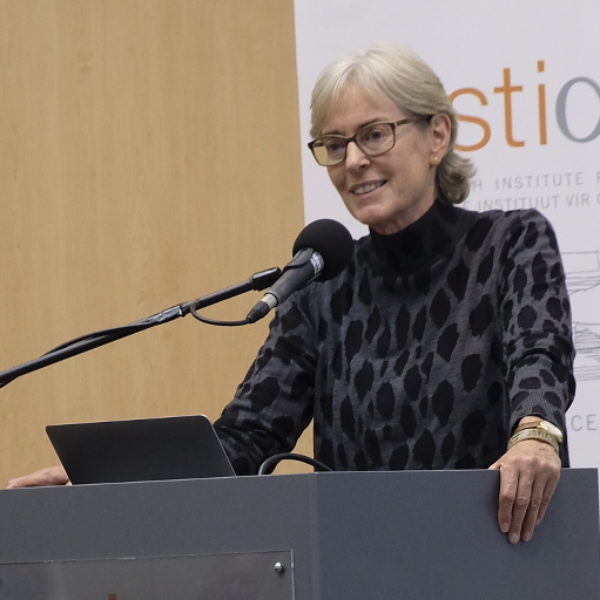This will be a hybrid event with limited spaces for in-person attendance, register here by 24 May 2022
Barbara König, Professor Emerita at the Department of Evolutionary Biology and Environmental Studies, University of Zurich and STIAS fellow will present a public lecture with the title:
Conspecifics matter: Revealing the basis and the significance of social interactions
 Abstract
Abstract
Social interactions play a crucial role in the lives of organisms, including humans. They influence varied aspects of an individual’s life history, physiology and behaviour, and therefore are in the focus of interest of fields as diverse as medicine, immunology, evolution, behavioural ecology, population biology and theoretical biology. Individuals benefit from social interactions, but at the same time compete over access to resources. A challenging situation here is that the social environment is characterized by a high degree of flexibility and intrinsic unpredictability and is thus considered to be the most complex and fluctuating component of an individual’s environment. Our research focusses on social interactions in an evolutionary framework and uses an integrative approach to understand how differences in the social environment lead to differences in social interactions that translate into fitness differences between individuals. We do so by utilising a long-term data set on a population of wild house mice (Mus musculus domesticus) and aim to investigate general principles underlying the evolution of sociality and its endocrine and neural mechanisms. In my talk I will highlight communal offspring care among female house mice to illustrate how decision making and social partner choice allow to stabilise cooperation and affect the dynamics of social groups and the entire population.
Barbara König German by birth, studied biology at the University of Konstanz, with a PhD received in 1985. After research fellowships and positions in Australia, Switzerland, Germany and India, she joined the University of Zurich, Switzerland, in 1996 as head of Animal Behaviour, until she retired in 2020. Her research interest is animal behaviour, studied from an evolutionary perspective. With her group, they aim to understand the evolution of social behaviour as well as how interactions with conspecifics structure groups and populations, processes also relevant for conservation. Working both in the field and in the laboratory, we use behavioural, ecological, physiological and molecular genetic methods to achieve a comprehensive understanding of the causes and consequences of social behaviour in mammals. Besides teaching, mentoring and serving as a reviewer, her academic and administrative services included: President of the German Zoological Society (DZG e.V.), Head of the Board of the Alexander von Humboldt Foundation, Managing Director (Department of Evolutionary Biology and Environmental Studies, Univ. Zurich), Member of Academic Boards or Scientific Advisory Boards (Max-Planck-Society, Austrian Academy of Sciences, Danish National Research Foundation, Volkswagenstiftung, Branco Weiss-Fellowship, National Centre of Competence in Gender Studies Zurich), Secretary General of the International Council of Ethology, and still ongoing: Member of the Board of the Swiss Academy of Natural Sciences (SCNAT) and Member of the Supervisory Board of the Zoo Zurich AG.
For more information, contact Ms Nel-Mari Loock at 021 808 2652 or [email protected]


